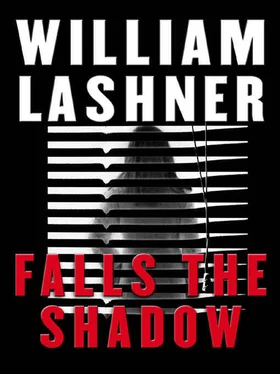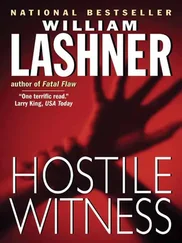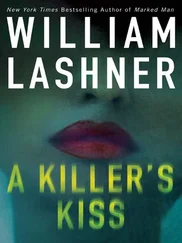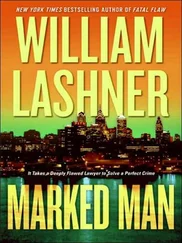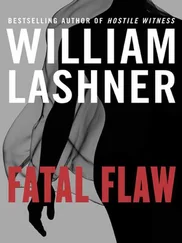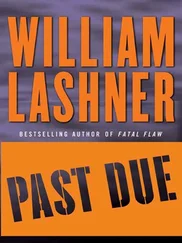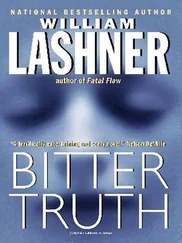“We can argue it was a burglary gone bad.”
“With nothing burgled? Break in, kill a stranger – no rape, just murder – and then run away without so much as grabbing a diamond ring? That won’t fly.”
“What else do we have?”
“Nothing, and that’s the problem. Not a damn thing.”
And I was right, we didn’t have a damn thing. But we did have the bones of something. Velma Takahashi’s apparent guilt. Geoffrey Sunshine’s shifty eyes. The strange story of Seamus Dent’s descent and redemption and death. And then there was the peculiarly coincident contacts of Dr. Pfeffer to Whitney Robinson and Seamus Dent both. I could spend every hour until the trial digging through the piles in the Dubé Tar Pit, but that wouldn’t get me one inch closer to taking those bones and gluing them together and animating some credible creature we could put in front of the jury and blame for Leesa Dubé’s death.
“You know what still puzzles me?” I said. “The stuff missing from François’s apartment that no one could account for.” It was the toys that were playing on my mind. Mrs. Cullen had mentioned toys. What kind of toys? Beanie Babies?
“François told us the landlord sold it off or threw it away,” said Beth.
“That’s what he said, but there was stuff missing even when the police searched his apartment.”
“Why is it important?”
“I don’t know. But it’s a loose end. Our only chance is to find some loose end and pull it until everything unravels.”
“If there was anything there, François would have told us.”
“You think so?”
“Of course.”
“It appears we have differing views of our client.”
“You don’t trust him.”
“And you do.”
She looked at me and there was something in her eyes. “Yes,” she said. “I do.”
And what I thought just then was “Crap.”
My partner, Elizabeth Derringer, was the type of woman whose beauty couldn’t be captured in a photograph, with a glossy black ponytail and a smear of freckles across her broad cheeks. A picture showed a serious woman with serious glasses, the type that shushed you quiet in the college library. But a photograph couldn’t catch the sharp humor, the abiding sweetness, the romanticism that hid like a virus in her heart. She still believed she could find something in the markets of Istanbul or along the rugged trails in Nepal that she couldn’t find in Philadelphia. Dysentery was all, I explained to her, but still she often mused aloud of traveling the world and finding a richer self. Paying clients would be a surer route, I told her, and when I did, she would smile indulgently, as if I were a sweet little puppy who had just peed on her shoe. I was worried, just then, that her romanticism had gotten the best of her. And I had cause, didn’t I?
“It’s just another case, Beth,” I said softly. “He’s just another defendant.”
“There’s no such thing,” she said.
“You know, Beth,” I said in my best avuncular tone, “it’s hard enough to determine innocence or guilt right after a crime has been committed, but this guy has been in jail-”
“I don’t need a lecture,” she snapped.
“Maybe you do. It is not our job-”
“Don’t, Victor. Please. I know our job. He hasn’t hugged his daughter in three years.”
“It shouldn’t matter.”
“But it does.” She slapped her notebook closed, stood up. “I’m tired,” she said. “I’m going home.”
I glanced at my watch, bolted to my feet. “Damn it, I’m late.”
“Hot date with Carol?”
“Hardly,” I said. “It’s with Carol, all right, but tonight is all business.”
Carol Kingsly was looking at the ground beneath my feet. I looked down, too. The interest with which she was staring down indicated that something quite special must lay there, the meaning of the universe, maybe, or at least a quarter. But there was nothing I could see, nothing at all, just the cement walkway outside the very fashionable, very trendy restaurant where she had set up a meeting with that rich guy who was thinking of hiring me as his lawyer.
“Are those your shoes?” she said finally.
“I think so,” I said. “They’re on my feet.”
“They have a rather thick sole.”
“Is that good?”
“On a dinner plate, maybe. Hopefully, no one will notice.” She reached to my neck, fixed the knot of my yellow tie. “Just smile, try to be personable, and don’t say anything intolerably rude.”
“I’d rather change my shoes.”
“Come on, you,” she said, yanking me forward. “We’re late.” Carol didn’t like to joke about business, which I found a little bit awkward, since the business portion of my professional life was pretty much a joke.
Inside, we were greeted as if we were actually important and led to a prime table right beneath the giant golden Buddha that gave the joint its name. Buddakan was bright and crowded, with varnished floors, high ceilings, onyx tables. The waitstaff wore pajamas, a too-hip crowd waited by the indoor waterfall for seating, and you had the sense, just by being there, that you were actually someone, actually somewhere, which was why, I suppose, so many people wanted in. Presiding over everything, on its bright red stage, was the aforementioned Buddha. He looked supremely happy, did the Buddha, content and satisfied, seemingly unworried about the soles of his footwear.
“I’m sorry we’re late,” said Carol when we reached the table. “Victor is preparing for a very high-profile trial, and it’s keeping him crazy busy.” She gave my arm a squeeze, looked adoringly into my eyes. “But that’s the price of being so in demand.”
A very lovely, very young Japanese woman said something in Japanese, and the middle-aged Japanese man beside her nodded.
Carol proceeded to introduce me around. There was Nick, her lovesick business associate, who gave me a sullen acknowledgment. Then the young Japanese woman, named Kyoko, who was apparently here as a translator. Next to Kyoko was the Japanese man himself, the apparent star of the evening, as round and as seemingly at ease as the Buddha over his shoulder. As Carol gave me his name, he stood and bowed and handed me his card, all of which was superfluous. I had never seen him before, but I knew who he was, right off. I could tell by the other woman at the table, the man’s wife, Velma Takahashi.
Velma puffed out her puffy lips as we were introduced. “Pleased to meet you, Mr. Carl.”
So that was how she was going to play it. Fine, I figured, I’d play along. I nodded at her and said something inconclusive, something like, “Nice to see you,” and then glanced at Mr. Takahashi, who was watching me quite carefully as the lovely Kyoko whispered in his ear. Without taking his eyes off me, he spoke in quick Japanese.
“What kind of trial is it that keeps you so busy, Mr. Carl?” said Kyoko in a musical, heavily accented voice.
“A murder trial,” I said. “A man is accused of killing his wife.”
Kyoko translated. Mr. Takahashi nodded and spoke.
“What will be your role at the trial?” said Kyoko.
“I’m defending the husband.”
“Then Mr. Takahashi is very glad to meet you,” said Kyoko, without bothering to translate.
Everyone laughed heartily, Takahashi included, everyone but Velma.
They served some sort of pan-Asian cuisine at Buddakan, things like diced eel and miso tuna tartare and their famous angry lobster, all washed down with porcelain cups of heated sake. The food was actually pretty good, which was the saving grace of the evening, since it was one of the most awkward dinners I ever had the misfortune to sit through. Carol did her level best to keep the conversation flowing – I actually felt a great deal of affection for her as she struggled mightily against the forces of darkness – and I did what I could to help, but the thing just wasn’t working. Desolation sat at the table as if it, too, had been invited.
Читать дальше
